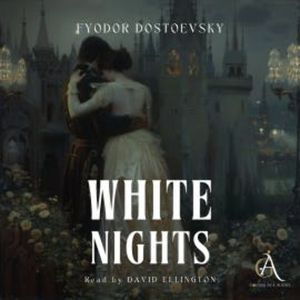Fyodor Dostoevsky's White Nights is a deeply emotional and poetic novella that explores themes of loneliness, dreams, and fleeting connections. The story follows a solitary dreamer who wanders the streets of St. Petersburg at night, lost in his own thoughts and imagination. One evening, he meets a mysterious young woman, Nastenka, who, like him, is longing for something beyond her reach. Over the course of several nights, they open up to each other, sharing their fears, hopes, and desires, forming an unusual bond.
Through delicate and lyrical prose, Dostoevsky captures the fragile nature of human emotions and the contrast between dreams and reality. White Nights is a meditation on love, solitude, and the way our most cherished moments can slip away like a dream. The novella remains one of Dostoevsky's most touching works, leaving readers with a bittersweet sense of longing and reflection on the nature of human connection.
